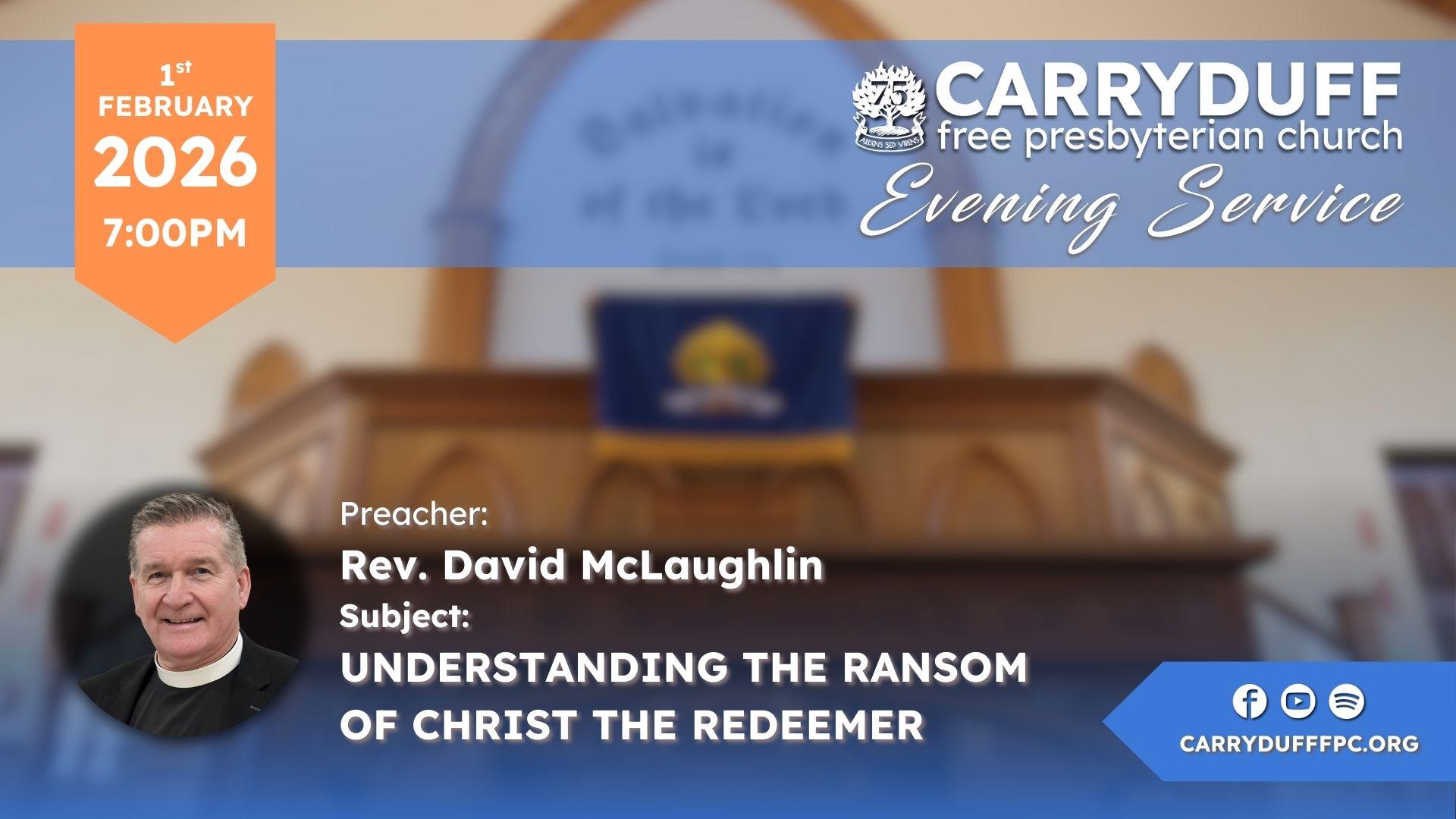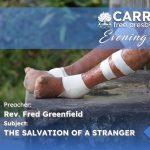Date: SUN 7:00 PM 15th June 2025
Singers: Kingdom Heirs
Preacher: Mr. Colin Maxwell
Bible Reference: Job 25:4
How then can man be justified with God?
or how can he be clean that is born of a woman?
Summary of the Sermon: How Can He Be Clean That Is Born of a Woman? (Job 4:4)
The sermon focuses on the rhetorical question posed by Bildad, one of Job’s friends, in Job 4:4: “How can he be clean that is born of a woman?” This question serves as a foundation for preaching the gospel, addressing the universal human condition of sinfulness and the divine solution through Christ’s redemption. The sermon is structured around three main points: analyzing the question, answering it, and applying it to the listener’s life.
1. The Question Analyzed
The question is rhetorical, designed to emphasize a theological truth rather than solicit an answer. Bildad’s point is that no one born of a woman can be clean, highlighting the doctrine of original sin. This doctrine teaches that all humans inherit a sinful nature from birth, a truth often denied or ignored but essential to understanding the necessity of the gospel.
- Scriptural Support: The sermon cites Psalm 51:5, where David confesses, “I was shapen in iniquity, and in sin did my mother conceive me,” and Psalm 58:3, which states that the wicked “go astray as soon as they be born.” These verses underscore that sin is innate, manifesting early in life.
- Sin as Uncleanness: Sin is described as moral pollution, akin to environmental contamination. Isaiah 64:6 calls human righteousness “filthy rags,” and Isaiah 6:5 shows the prophet’s recognition of his own uncleanness before God’s holiness. Paul echoes this in Romans 7:24, lamenting his wretchedness, and Job later abhors himself (Job 42:6).
- Consequences of Uncleanness: Sin is contagious, dangerous, and deadly, leading to spiritual disease and eternal separation from God. Revelation 21:27 states that nothing unclean can enter heaven, emphasizing the dire consequences of remaining in sin.
The sermon stresses that acknowledging one’s sinful state is critical, as denying it risks arguing oneself out of salvation. Bildad’s theology, though correct, was misapplied pastorally, adding to Job’s affliction rather than comforting him.
2. The Question Answered
Though originally rhetorical, the question is treated as one demanding an answer: how can sinful humans be cleansed? The sermon asserts that while humans cannot cleanse themselves, God provides a solution through the sacrificial death of Jesus Christ.
- Human Inability: Jeremiah 2:22 illustrates that no amount of human effort (likened to washing with strong soap) can remove sin’s stain. No church rituals or human schemes can achieve cleansing.
- Divine Solution: The answer lies in the “fountain filled with blood” from Christ’s sacrifice on the cross (Zechariah 13:1). Christ, who was sinless, became sin for humanity (2 Corinthians 5:21), bearing God’s wrath as a substitute. His blood satisfies divine justice and cleanses sinners (Hebrews 9:22).
- Job’s Faith: Despite his suffering, Job exemplifies faith in a living Redeemer (Job 19:25), contrasting with the false deities of his time. This Redeemer, the true God, is merciful, offering grace to the guilty despite humanity’s rebellion (Genesis 6:6).
- Ongoing Cleansing: The blood of Christ not only cleanses initially but continues to purify believers (1 John 1:7). The sermon references the hymn, “The blood that washed my sins away still cleanseth every hour,” and Jesus’ words to Peter about being wholly clean (John 13:10).
3. The Question Applied
The sermon concludes by making the question personal, urging listeners to consider their own need for cleansing. It emphasizes the urgency of responding to the gospel, particularly as the sermon is delivered on the final night of a gospel mission.
- Personal Responsibility: Listeners are challenged to confess their sins directly to Jesus, the great High Priest (1 John 1:9), forsaking all other means of salvation. Human-made schemes are labeled as unbelief, dangerous and worthy of repentance.
- Urgency of Decision: The sermon uses the analogy of Paul shaking off a viper (Acts 28:3) to encourage listeners to reject false hopes immediately. The gospel’s power remains undiminished after 2,000 years, offering salvation to all who believe (Romans 1:16).
- Invitation to Come: Quoting John 6:37, the preacher assures that Christ will not cast out anyone who comes to Him. The sermon closes with a call to pray for cleansing, even silently in one’s seat, acknowledging personal uncleanness and trusting in Christ’s blood.
Contextual Notes
- Bildad and Job’s Comforters: Bildad and his companions (Eliphaz and Zophar) are introduced as Job’s friends who initially mourned silently with him for a week but later added to his suffering with their words. Their theology was sound, but their lack of pastoral sensitivity made them proverbial for unhelpful comfort.
- Gospel Mission Setting: The sermon’s tone reflects the solemnity of a gospel mission’s final night, with an evangelistic focus on urging immediate response to the gospel.
- Cultural References: The sermon uses contemporary imagery (e.g., Thames Water pollution, laundry stains) to make the concept of sin relatable, while grounding its message in Scripture.
Key Takeaway
The sermon uses Bildad’s question to underscore the universal problem of sin and the exclusive solution found in Christ’s atoning sacrifice. It calls listeners to recognize their uncleanness, confess their sins, and trust in the cleansing power of Jesus’ blood, emphasizing the urgency of this decision in light of eternity.
Subscribe to the podcast here:
Spotify Podcasts | Apple Podcasts | Pocket Casts
Email | RSS | more information here








